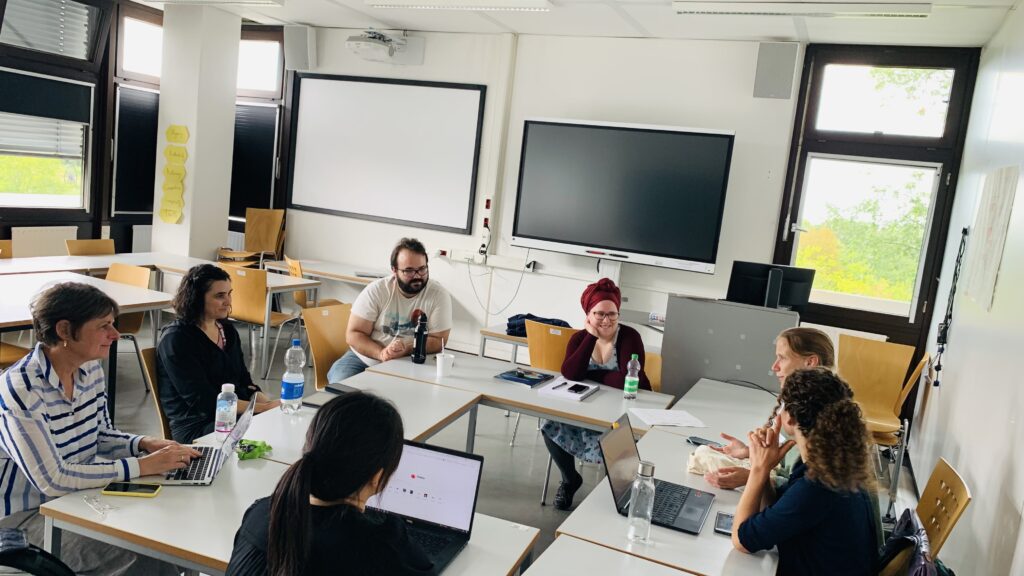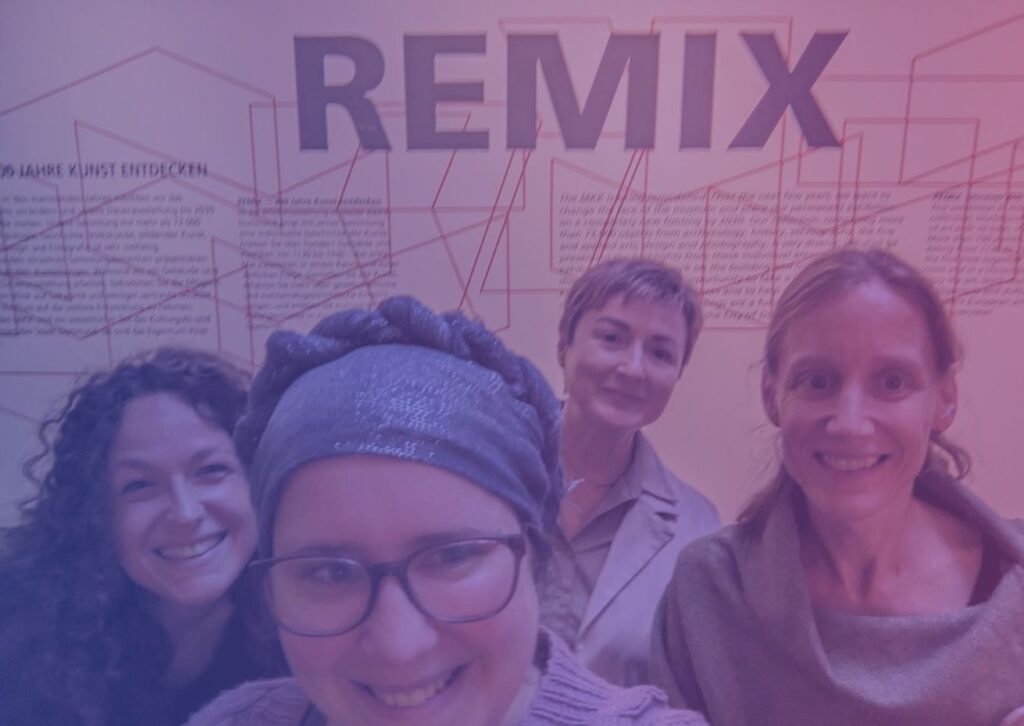Authors:
Dr Inge Birnie (Ingeborg.birnie@strath.ac.uk) – ORCID https://orcid.org/0000-0001-8227-9364
Dr Maggie Glass (Mandalyn.glass@tu-dortmund.de)
How do we protect minority language and minority language rights in the Human Machine Era?
This question was at the heart of the shared Working Group 3 and Working Group 4 workshop held on the 13th and 14thof September at the Technical University Dortmund. Starting from the Council of Europe’s European Charter for Region and Minority Languages the participants to the workshop, who came from Germany, the UK, Moldova, and Spain, started, after negotiating the complexities of Deutsche Bahn cancellations and delays, and a “life-changing” cup of coffee, with a discussion on the definitions that would shape the workshop. This included a robust debate on the definition of minority languages and how this definition might change in the near future as the ongoing development of Large Language Models (LLMs) takes us into the Human Machine Era. The discussions continued to include the focus of (future) language rights: should this be about those using the language, the language itself, or about the cultural heritage and access to information?
This discussion then moved on to talk about the “ownership” and “use” of the data that is used to train these LLMs, including who is involved in providing the input to these, concluding that community (however defined!) input was essential and that the development of technologies using the data collection and training of the models needs to be done using clear and shared goals that are articulated in advance of any project to ensure that these are equitable for the language community and the developers or organisations, whilst also acknowledging that smaller communities might not have the technological knowledge and expertise available to create the technologies that are relevant to them, rather than those developed by large organisations and translated or provided in a minority language.

The workshop ended by identifying some clear action points to take forward towards the formulation of recommendations to support minority language rights in the Human Machine Era but also with some further questions around realistic and ideologically and how these impact on the rights of languages and the rights of people.
If you are interested in being part of the discussion – please contact Angela Soltan (WG3), Inge Birnie (WG4) or Maggie Glass (WG4) for more information.
.

